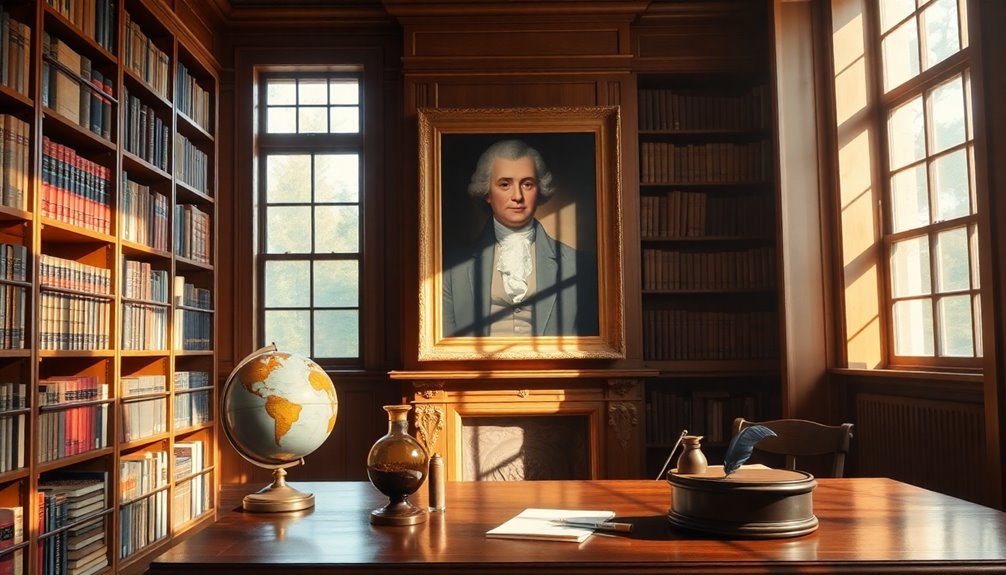Many famous sayings are actually misattributed, shaping how we view history and famous figures. For example, phrases like “Insanity is doing the same thing over and over again and expecting different results” are often linked to Einstein, but there’s no proof he said it. Similarly, “Let them eat cake” is wrongly attributed to Marie Antoinette. These false origins stick because they fit our stories. If you keep exploring, you’ll discover more surprising truths behind these iconic quotes.
Key Takeaways
- Many famous quotes are misattributed due to folklore, misremembering, or lack of source verification.
- False attributions influence cultural perceptions and often persist through repetition in media and popular culture.
- Examples include “Insanity is doing the same thing over and over” (linked to Einstein) and “Let them eat cake” (attributed to Marie Antoinette).
- Verifying the true origins of quotes requires careful research, as many popular sayings lack reliable sources.
- Recognizing misattributions helps prevent spreading false information and fosters a more accurate understanding of history.

Have you ever repeated a famous quote only to discover it was never said by the person you thought? It’s a common mistake, one rooted in the world of historical misattributions and famous misquotations that have circulated for decades. These misattributions often stem from folklore, misremembered conversations, or simple misprints, and they can distort our understanding of history and the figures we admire. For example, many believe that Albert Einstein said, “Insanity is doing the same thing over and over again and expecting different results,” but there’s no solid evidence he ever uttered those words. Instead, it’s become a popular paraphrase attributed to him, highlighting how easily well-known phrases become detached from their true origins.
These misattributions are more than just amusing errors; they shape perceptions and influence culture. When we hear a quote repeatedly, it feels authentic, even if it’s not. This phenomenon contributes to the proliferation of famous misquotations—phrases that are widely accepted as truth but have no basis in fact. Take the line “Let them eat cake,” often attributed to Marie Antoinette. Historians now agree she probably never uttered those words, but the phrase persisted because it captured an image of royal indifference that resonated with public sentiment. Such examples show how false attributions can become part of collective memory, cemented by repetition and emotional appeal.
False attributions shape culture, persisting through repetition and emotion, even without factual basis.
Uncovering the truth behind these quotes requires careful research. Sometimes, these phrases are misattributed because they appear in popular culture, movies, or books, which reinforce their supposed authorship. Other times, they’re the result of casual misremembering—someone hears a phrase, and it gets passed along as if it were a verified quote. As you explore these stories, you realize that many famous misquotations are more about narrative than accuracy. They serve to support a particular viewpoint or encapsulate an idea, even if they lack factual foundation.
Understanding the real origins of these quotes helps you appreciate the importance of verifying sources. It also reminds you that history is often more complex than the simplified sayings we’ve come to accept. While these misattributions might seem trivial, they reflect a broader tendency to accept convenient stories over factual truths. So next time you hear a quote that sounds familiar, take a moment to question its origin. Chances are, you’ll find it’s a clever fabrication or a mistaken attribution, rather than the words of the person it’s associated with.
Frequently Asked Questions
How Do Misattributed Quotes Impact Historical Accuracy?
Misattributed quotes can distort historical accuracy by spreading false information and skewing perceptions of events or figures. When you don’t verify a quote, you risk perpetuating inaccuracies that influence public understanding and scholarly research. To protect historical integrity, you need to prioritize quote verification, ensuring the words attributed truly belong to the individual. This careful approach maintains the credibility of history and prevents the spread of misinformation.
What Techniques Are Used to Verify the True Authors of Quotes?
To verify the true authors of quotes, you use source verification and attribution methods. You examine original documents, letters, or recordings to confirm authorship. Cross-checking multiple credible sources helps guarantee accuracy. You also analyze writing style, context, and publication dates. Employing these techniques helps you prevent misattributions, preserving historical accuracy, and ensuring you credit the correct individual for their words.
Why Do People Often Misattribute Famous Sayings?
You often see people misattribute famous sayings because of cultural myths and memory errors. These sayings become ingrained in your collective consciousness, making it easy to associate them with well-known figures. Over time, your memory can distort details, leading to incorrect attributions. Additionally, stories get passed down and reshaped, reinforcing false attributions. This cycle makes it challenging to remember the true origins of many popular quotes.
Can Misattributions Influence Public Perception of a Figure?
Misattributions can profoundly influence your perception of a figure, shaping their reputation in unexpected ways. When you believe a famous quote belongs to someone, it can elevate or tarnish their public image, often without you realizing it. This subtle distortion sways opinions, creating lasting impressions. So, next time you hear a quote, consider its true origin—your perception might be more affected than you think, altering how you view the person behind it.
Are There Famous Examples of Intentional Quote Misattribution?
Yes, there are famous examples of intentional quote misattribution, especially in celebrity endorsements and political slogans. You might recall how some figures claim certain sayings to boost their image, even if they didn’t originate them. These deliberate misattributions aim to influence public perception, creating a stronger connection to messages or ideals. By doing so, people often accept these quotes as authentic, shaping opinions based on false attributions.
Conclusion
Now that you know how easily quotes can be misattributed, remember to take everything with a grain of salt—some sayings are as old as dial-up internet, yet still wrongly credited. Always double-check your sources before dropping a famous line at your next TED Talk or TikTok. After all, even the greatest minds like Einstein or Churchill can get caught in the web of misattribution. Stay curious, and keep questioning what you hear!









